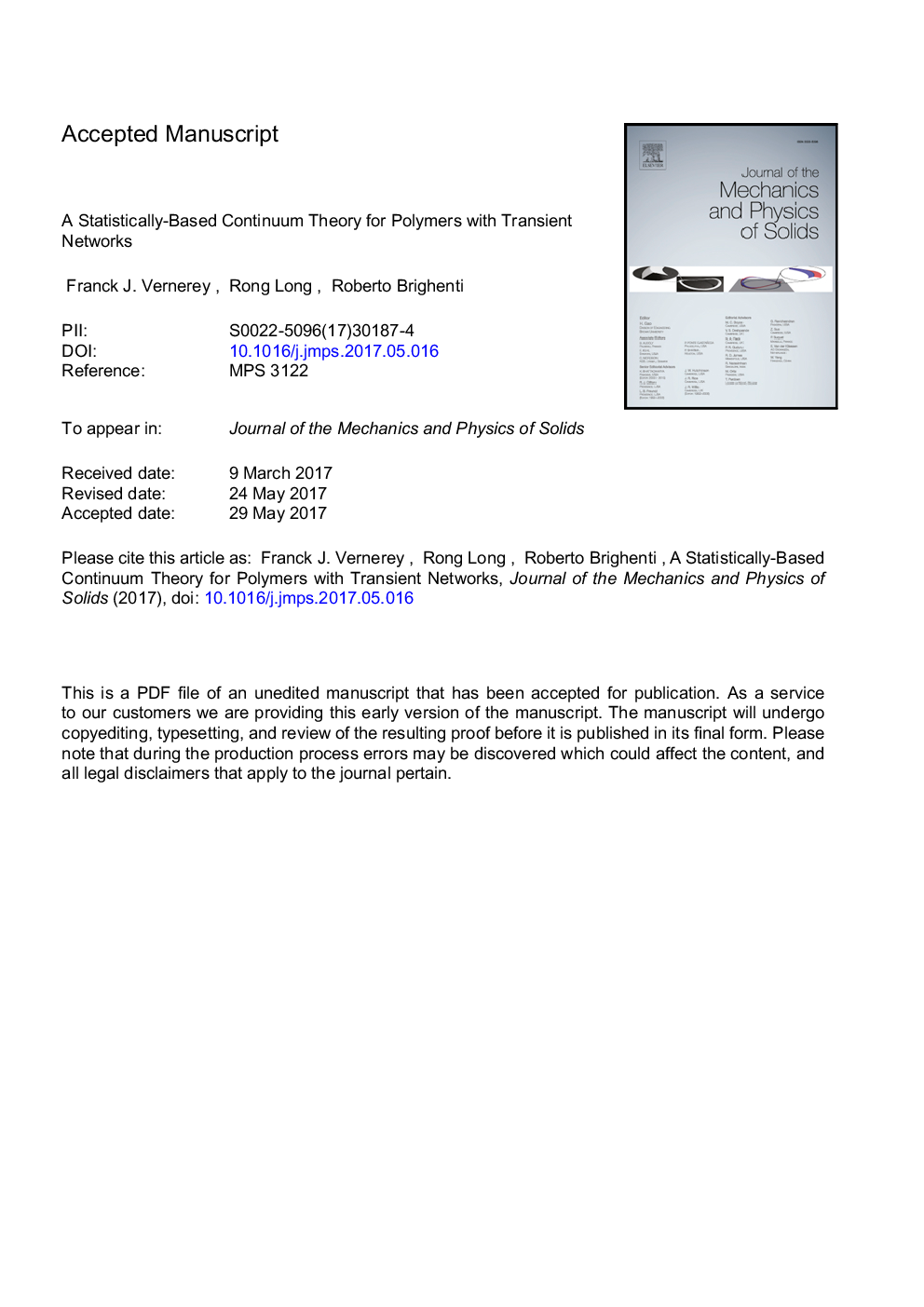| Article ID | Journal | Published Year | Pages | File Type |
|---|---|---|---|---|
| 5018163 | Journal of the Mechanics and Physics of Solids | 2017 | 53 Pages |
Abstract
We present a physics-based theoretical framework to describe the transient mechanical response of polymers undergoing finite deformation. For this, a statistical description of the polymer network is provided by a distribution function that is allowed to evolve in time due to a combination of deformation and chain reconfiguration enabled by transient cross-links. After presenting the evolution law for the chain distribution function, we show that, using classical thermodynamics, one can determine how the entropy, elastic energy and true stress evolve in terms of the network configuration. In particular, we introduce the concept of distribution tensor, which enables a clean transition between the network statistics, its continuum representation and the macroscopic polymer response. In the context of Gaussian statistics, it is further shown that this tensor follows its own evolution law, enabling a simple handling of visco-elastic rubbers. The model degenerates to classical rubber elasticity when cross-links are permanent, while the case of viscous fluids is recovered for fast cross-link kinetics. The generality of the framework as well as its relevance to modeling a number of important dissipative processes occurring in polymers using a continuum approach are also discussed.
Related Topics
Physical Sciences and Engineering
Engineering
Mechanical Engineering
Authors
Franck J. Vernerey, Rong Long, Roberto Brighenti,
